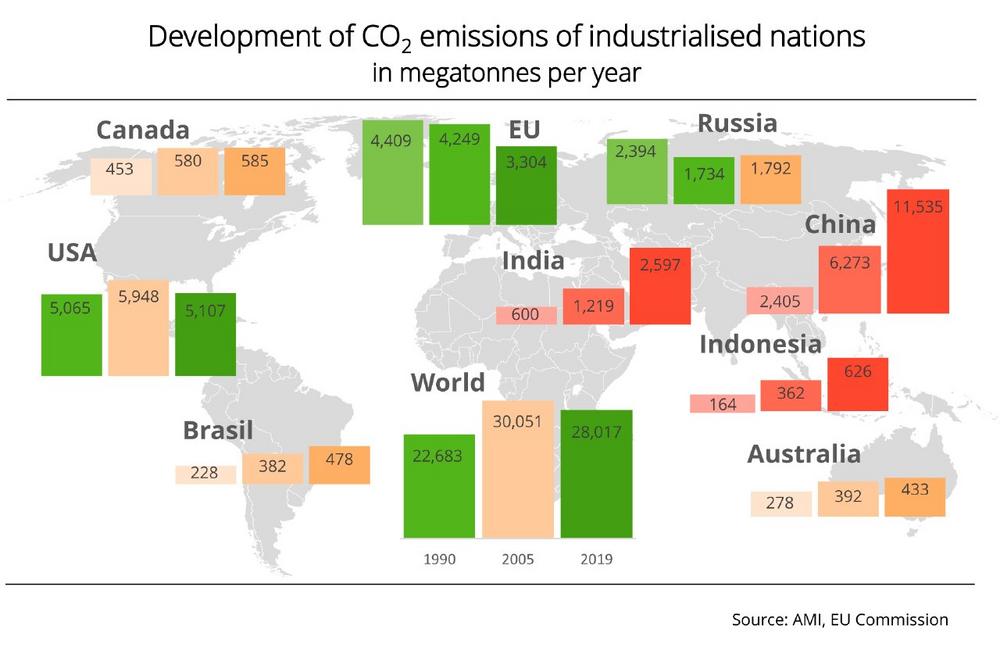
CO2 emissions declined only in a few countries
The UFOP has pointed out that the increase in global fossil CO2 emissions observed in the years 2017 and 2018 continued in 2019, if at a slower rate. The EU Commission’s in-house Emission Database for Global Atmospheric Research (EDGAR) has shown that the EU and Russia were the only industrial regions with CO2 emissions clearly (around 25 per cent) below those of 1990. Over the same period, CO2 emissions in the US and Japan rose 0.8 per cent and 0.4 per cent respectively, whereas CO2 emissions released into the atmosphere by the emerging economies of China and India were 3.8 and 3.3, respectively, higher compared to 1990 due to their rapid industrialisation in the past two decades. However, the database records only the world’s fossil CO2 emissions from anthropogenic activities, i.e. those generated by using fuels such as mineral oil, coal or natural gas. It does not cover CO2 emissions from biomass burning, changes in land use (clearing primeval forest/grassland, release of methane from permafrost soils) or forestry.
Since the beginning of the 21st century, global greenhouse gas emissions have increased compared to the three previous decades. This was mainly due to the growth in CO2 emissions in emerging markets. The latest EDGAR estimates confirm that this trend continued in 2019, with global anthropogenic fossil CO2 emissions rising 0.9 per cent on 2018 and reaching a volume of 38 gigatonnes of CO2-eq.
In 2019, the world’s biggest CO2 emitters – China, the US, India, the EU-27 plus UK, Russia and Japan – accounted for 51 per cent of world population and 62.5 per cent of the global gross domestic product (GDP). At the same time, they were responsible for 62 per cent of total global fossil fuel consumption and 67 per cent of global fossil CO2 emissions. Greenhouse gas emissions developed differently between these countries in 2019 compared to 2018. The biggest increases were recorded for China and India, whereas the largest decline was identified for the EU-27 plus UK at 3.8 per cent.
The Union for the Promotion of Oil and Protein Plants e. V. (UFOP) represents the political interests of companies, associations and institutions involved in the production, processing and marketing of domestic oil and protein plants in national and international bodies. UFOP supports research to optimise agricultural production and for the development of new recycling opportunities in the food, non-food and feed sectors. UFOP public relations aim to promote the marketing of domestic oil and protein plant end products.
UFOP – Union zur Förderung von Oel- und Proteinpflanzen e.V.
Claire-Waldoff-Str. 7
10117 Berlin
Telefon: +49 (30) 2359799-40
Telefax: +49 (30) 2359799-99
http://www.ufop.de
Telefon: +49 (30) 31904-225
E-Mail: s.arens@ufop.de
![]()




